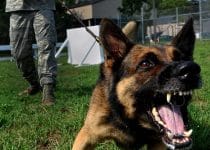Unlock The Secrets: A Guide To Effective Dog Training
Training your furry friend can be an incredibly rewarding experience, fostering a strong bond between you and your canine companion. Whether you're a first-time dog owner or seeking to enhance your training skills, this comprehensive guide will provide you with expert insights and practical tips to embark on this exciting journey.
**Laying the Foundation: The Importance of Socialization**
Socialization is paramount for puppies and young dogs. Exposing them to a variety of people, animals, and environments helps them develop confidence, prevents fear-based behaviors, and enhances their overall well-being. Supervised interactions with other dogs, playdates, and visits to different places are all crucial for their social development.
**Establishing a Clear Communication System**
Consistency is key when training your dog. Establish clear commands and stick to them consistently. Use short, unambiguous words and pair them with hand signals or gestures to reinforce your instructions. Avoid using multiple words or phrases for the same command to prevent confusion.
**Positive Reinforcement: The Power of Rewards**
Reward-based training is a highly effective method that encourages desired behaviors. When your dog performs the desired action, immediately reward them with a treat, praise, or play. This positive reinforcement strengthens the association between the behavior and the reward, making it more likely for them to repeat the action.
**Patience and Consistency: The Key Ingredients**
Training your dog requires patience, consistency, and a willingness to invest time and effort. Avoid getting frustrated or punishing your dog for mistakes. Instead, focus on rewarding them for progress and being patient when they don't get it right away. Regular, short training sessions are more effective than sporadic, long ones.
**Addressing Common Training Challenges**
House training accidents are a common challenge for new dog owners. Establish designated potty areas and take your dog out frequently, especially after meals and naps. If accidents do happen, calmly clean them up and reinforce the proper elimination spots. With consistency and patience, your dog will eventually learn to control their bladder and bowel movements.
**Leash Training: Teaching Your Dog to Walk Politely**
Leash training is essential for responsible dog ownership. Start by teaching your dog to walk calmly on a loose leash next to you. Use positive reinforcement to reward them for staying beside you and avoid pulling or lunging. Gradually increase the duration and distance of your walks as they progress.
**Advanced Training: Unleashing Your Dog's Potential**
Once your dog has mastered basic obedience commands, you may consider advanced training to enhance their skills. Agility training, obedience competitions, and specialized training for specific tasks, such as retrieving or scent work, can provide mental and physical stimulation for your dog while strengthening your bond.
**Tailored Training: Understanding Your Dog's Individuality**
Every dog is unique, with its own temperament and learning style. Tailor your training approach to your dog's individual needs. Observe their strengths and weaknesses and adjust your training methods accordingly. Positive reinforcement and patience will always be the cornerstone of effective dog training.


